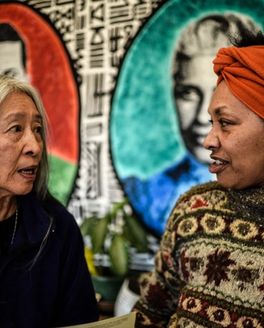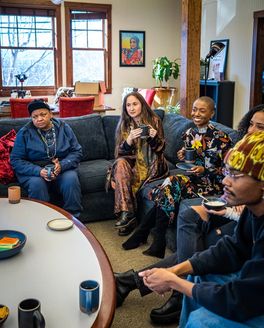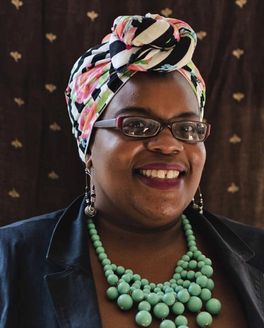The Makings of a Home
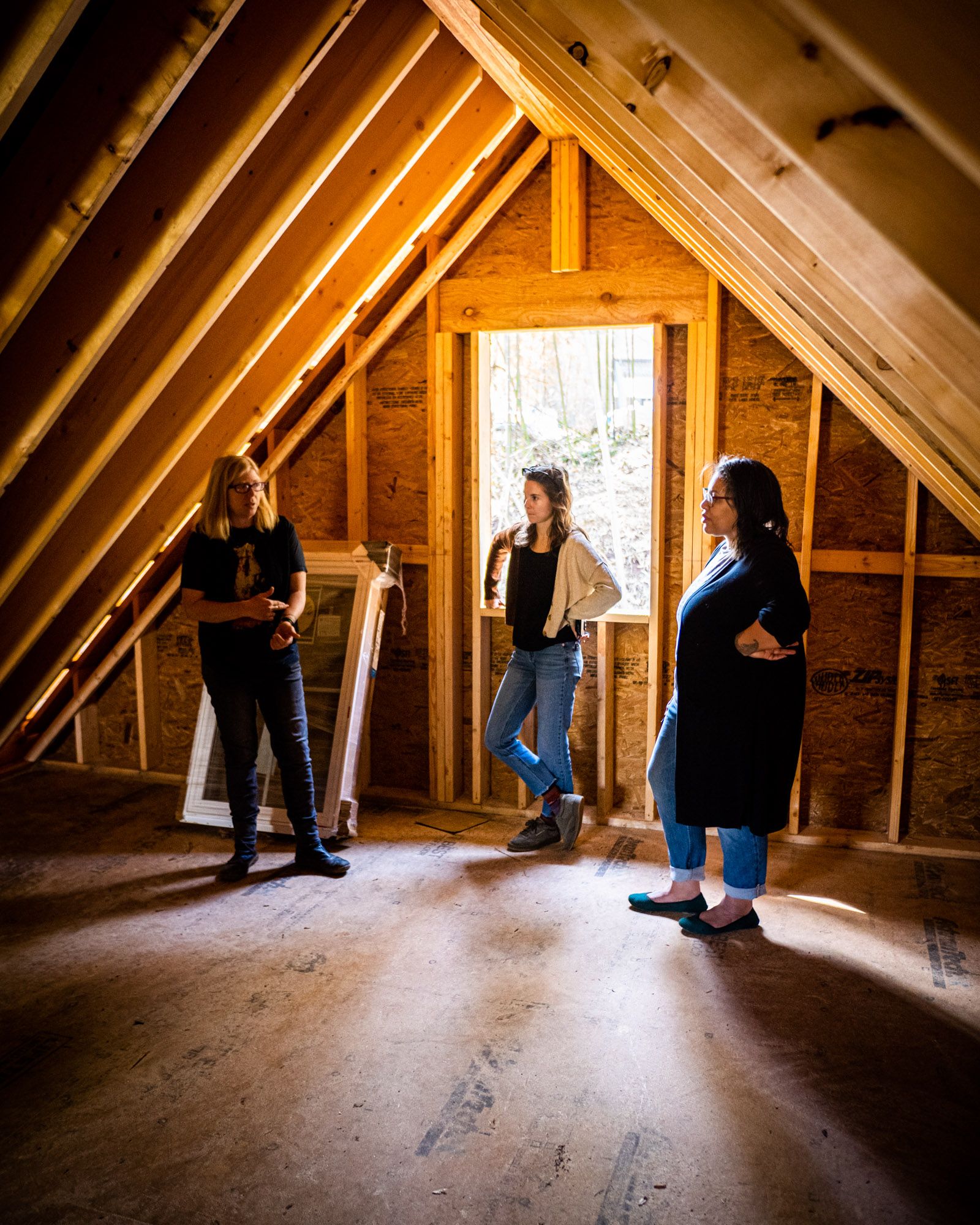
This year East Fork’s community partnerships are centered around the theme of home. We are thinking about being nested within our community and how to play a pivotal role in supporting grassroots work, and those who are on the ground addressing our current housing crisis in Western North Carolina.
Last quarter we partnered with Racial Justice Coalition and learned about their vision for thriving communities, the far-reaching impacts of urban renewal and the importance of reparations in our conversations around housing access.
This quarter, we are excited to announce that we are deepening our relationship with BeLoved Asheville.
In 2022, we partnered with BeLoved in support of their micro-home village building project, nestled on a hillside amongst tall, green bamboo shoots and a neighborhood of already established homes. You helped us raise $65, 292.88 through Seconds sales and raffles, plus an additional estimated $30,000 in donations made directly to BeLoved.
Last year, they’d only just begun building the first home in BeLoved Village. This year, we’re partnering with them again as they expand the village, to support their vision of deeply affordable, equity-driven housing in our community that can be a model for communities across the nation.
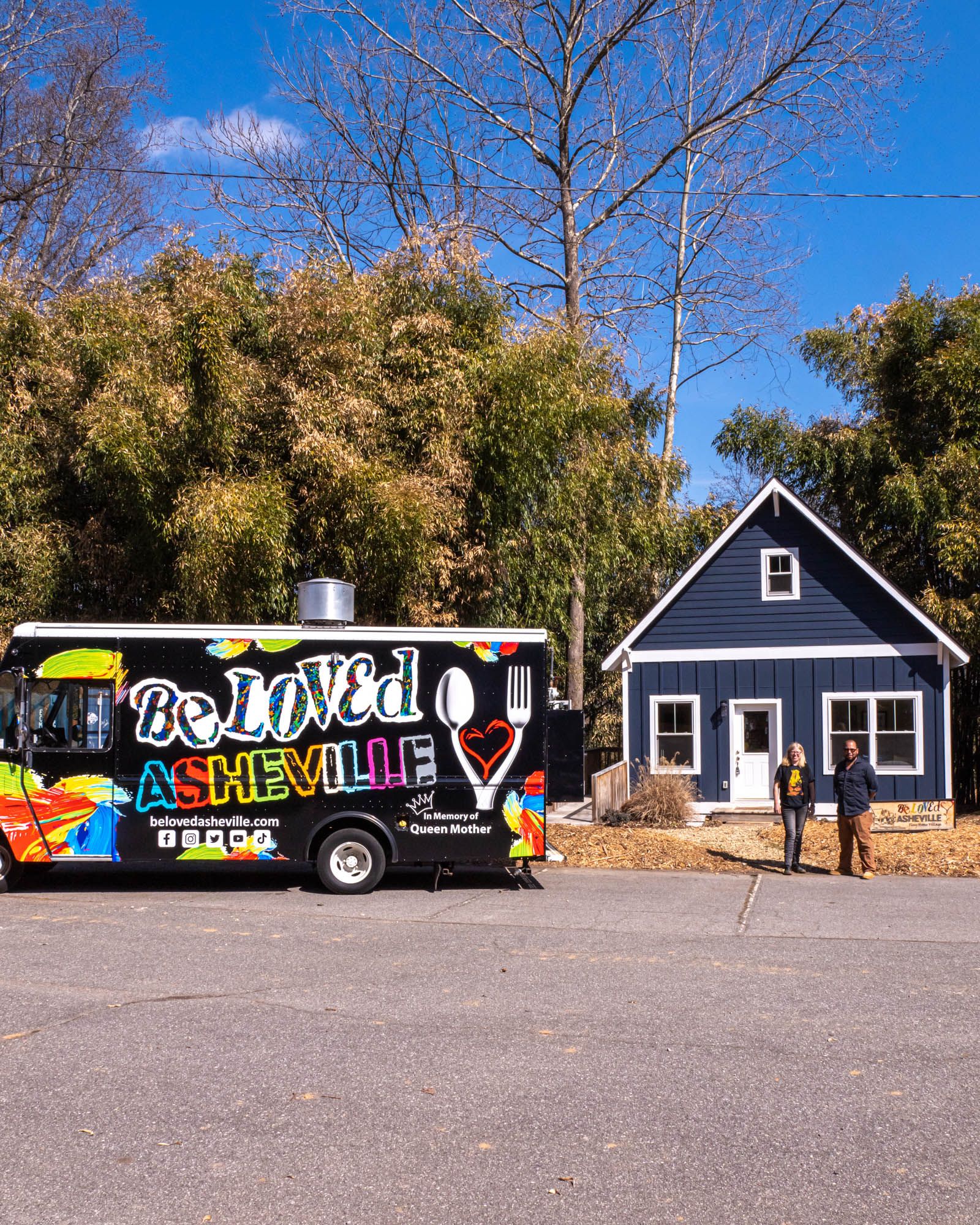
BeLoved Asheville’s reputation precedes them. This dynamic nonprofit is known throughout the city and arguably, the nation, for being “in the eye of the storm” by providing for those in need and helping us to remember the humanity of all.
If you’re an Asheville local, it’s likely you’ve seen their street pantries dot sidewalks across town, caught a glimpse of their food truck, La Cocina de Mama/Mama’s Kitchen, honoring the memory of our community elder, Queen Mother on the road, or been captivated by the storytelling and advocacy work of BeLoved community builders, Ponkho Bermejo and Amy Cantrell.
Their mission is to cultivate a transformational way of life that is rooted in community, creativity, and equity. Their people are those who some would call marginalized, the ones who stand at the intersections–neighbors struggling with housing insecurity, BIPOC people, and those across the spectrum of gender identities and sexual orientations. There’s a place for everyone in BeLoved’s community, room for everybody at their widespread table.
East Fork’s Davia Young, Donnie Bishop, and I sat down to catch up with Amy and Ponkho at BeLoved Village, for stories of the community’s ingenuity, grit, and resourcefulness.
When the police knocked on the door of BeLoved’s downtown community space in October of 2016, Amy Cantrell’s heart sank.
“We need you to identify a body for us,” they said. “We have a picture, but we don’t know if you can look at it.”
Amy knew she couldn’t turn away. As she tells us about that grim moment, her voice grows tender.
We’re gathered inside the first completed and furnished model micro-home in BeLoved Village on an unseasonably warm day in February. When it was featured in the 2022 Western North Carolina Parade of Homes, a wealthy parade-goer remarked with some surprise upon seeing the house: “I could live here.” Art hangs on the walls and hand-sewn, artisanal pillows adorn the couch and bed in the next room. Light pours through the windows and bounces off the blond wood floors, giving the room a gentle glow.
A friend of the BeLoved community, Janet Jones had been a “Jane Doe” for five days, Amy explained. Found frozen in her red sleeping bag by the French Broad River, Janet slipped away on the first cold night that October. As word spread, Janet’s friends gathered to tell stories–she was especially known for caring for turtles on the river–and mourn her death.
The community came to a decision. BeLoved would hold their first public funeral as a way to honor Janet and to spread awareness about the storm of Asheville’s housing crisis.
Ponkho crafted a wooden coffin with the words “No More Homeless Deaths'' emblazoned across the side. Carrying the coffin through the city streets and ending the procession at the Federal Building, the community’s symbolic funeral struck an unequivocal chord:
Everyone deserves a place they can call home.
When you think of the term affordable housing, what springs to mind? Do you question the phrase itself? For Ponkho, whose first language is Spanish, the way we speak about “affordable housing” doesn’t translate. Since there are some people who can’t actually afford affordable housing, Ponkho wondered, “how then is affordable housing a house you cannot afford?”
The community began to dream together. First using new language–instead of revisioning affordable housing, which conjured images of soulless, drab blocks of buildings, they began to dream about “deeply affordable homes with dignity and equity.”
"We're crowded up into these old hotel conversions or public housing and it doesn't feel safe. It feels chaotic, it doesn't feel homelike, doesn't feel dignifying," Amy recalls the community’s stories of their experiences of affordable housing.
Over the past six years, BeLoved has tended the dream of building deeply affordable housing and co-creating a community that subverts nearly all the dominant narratives about the way the homes are built, how homes are paid for, and who has access to them. When asked about what a dream home looks like, the community responded in varying ways, but in ways that people with economic privilege might take for granted:
We want a house that looks like a home.
We want to grow gardens.
We want to live around people that we care about and that care about each other.
We want a full kitchen and a full bath.
We would just love to have family or friends over and cook a full meal for them.
Building BeLoved Village, and essentially becoming housing developers and contractors for a neighborhood comprising 12 micro-homes, was a challenge.
“We studied different models, studied the housing prices, studied how affordable housing gets built and financed and we were honing these pillars, and [realizing that] being deeply affordable, sustainable, and community-oriented produced equity,” Amy says.
With equity serving as their North Star, the dream became a reality.
“Equity is a very powerful agent,” Amy explains. “We talk about equity in two ways. Racial equity is very significant to this project and always has been. We talk about the long vein that runs through racism with the word housing on it, and the ways that housing policy [learn more about redlining here] has been used and wielded to create harm and create systemic racism generationally. And so that was one of the things that we began to talk about, well how do we look at home equity differently?”
Since many of BeLoved’s friends who live on the streets can’t access lending systems or mortgages, the organization created a front equity model that allows people to earn wealth through rent equity. It’s a new model being studied across the country, in hopes that it can be replicated to meet the need for deeply affordable housing in other cities.
With equity accounts that function in the same way as home equity, if a person moves out of the Village, they take the equity they’ve built with them. If they stay, they can borrow off the account to mitigate a crisis or move forward in life–like going back to school, starting a small business, or getting a reliable vehicle so they can get to work. These are huge issues among BeLoved’s friends, and rent equity was one of the community-devised solutions to support liberation from poverty.
If you follow what Amy and her daughters have nicknamed, “the goat trail,” from the model house down the hill to the other homes in the Village, you’ll find the foundation footers for two homes with the beginnings for floors. Nearby are three completely framed houses, ready for plumbing and electrical wiring and open to the wind, awaiting the new life that will pass through them. With these homes fully framed up, it will signal the halfway mark of this first BeLoved Village project with more villages already being dreamed.
“What I'm reminded of is the strength that can come from our ability to bring everybody around a common table and to dream dreams,” Amy says.
From the very young, to the elders of the community, to those who have never lifted a hammer, to seasoned craftspeople, to the artists, civil engineers, and land surveyors who have volunteered their time and energy on behalf of BeLoved Village, everyone has a gift to offer and a place at the table.
“Everybody that comes to the village to volunteer leaves happy,” Ponkho says. “...none of us are going to live in these homes, but it's doing something to change us…that ability to come together and build the common table of people who say we believe in each other.”
“I remember the day that the framing package, that is all the wood used to build a home, was delivered for this model home that we're sitting in,” Amy says. “...I remember sitting down on the pile and just bursting into tears. I remember saying, Janet, it's happening. It's happening."
BeLoved Village is supported largely through donated labor and materials. Generous contributions from the greater Asheville community have funded more than 70% of the construction cost. You can learn more about BeLoved Village, or donate here.
